
The Five Gods of Wealth in Traditional China
By Storybird

14 Feb, 2024
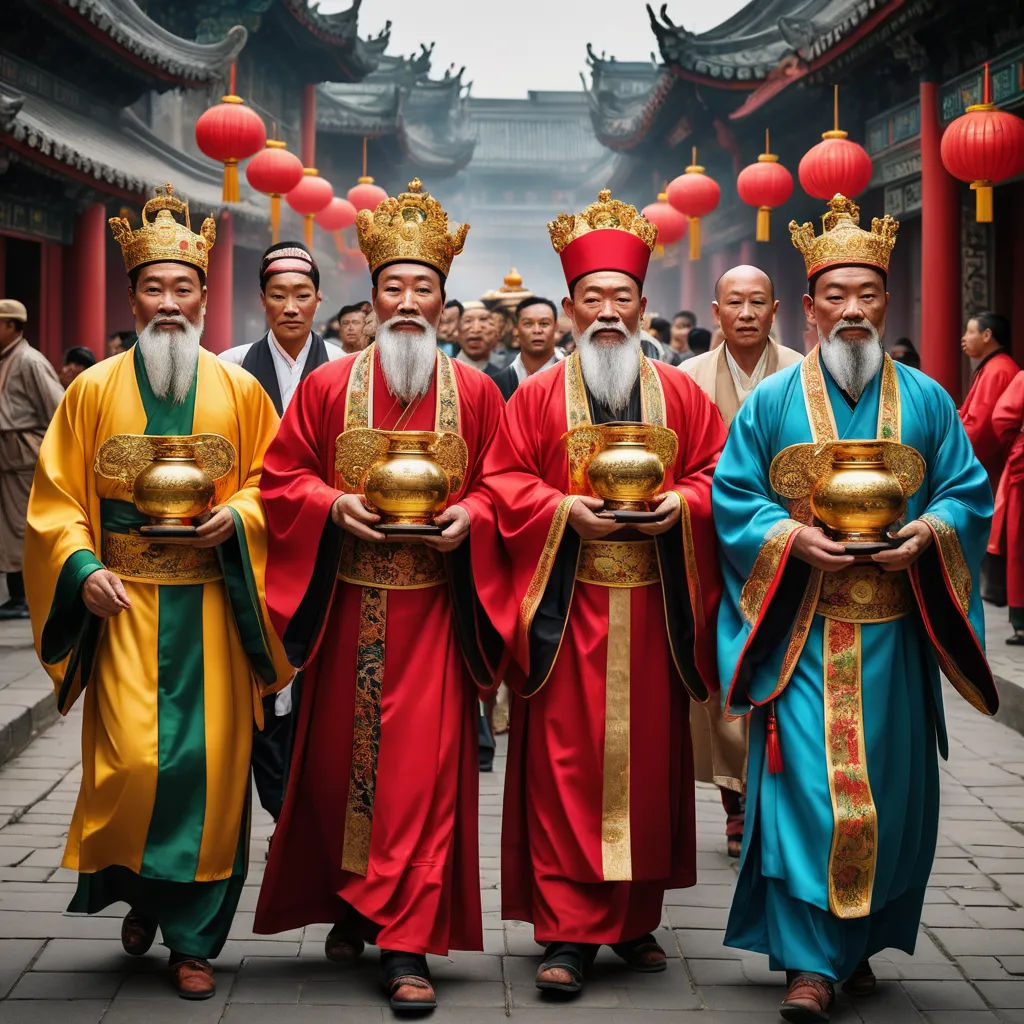
Once upon a time, in the heart of ancient China, five legendary Gods of Wealth, each with their unique strengths, were revered by the people. They were known to bring prosperity and fortune to the lands they blessed.

The first god, Bi Gan, was known for his wisdom and kindness. He was especially adored by scholars, who sought his blessings for their intellectual pursuits.
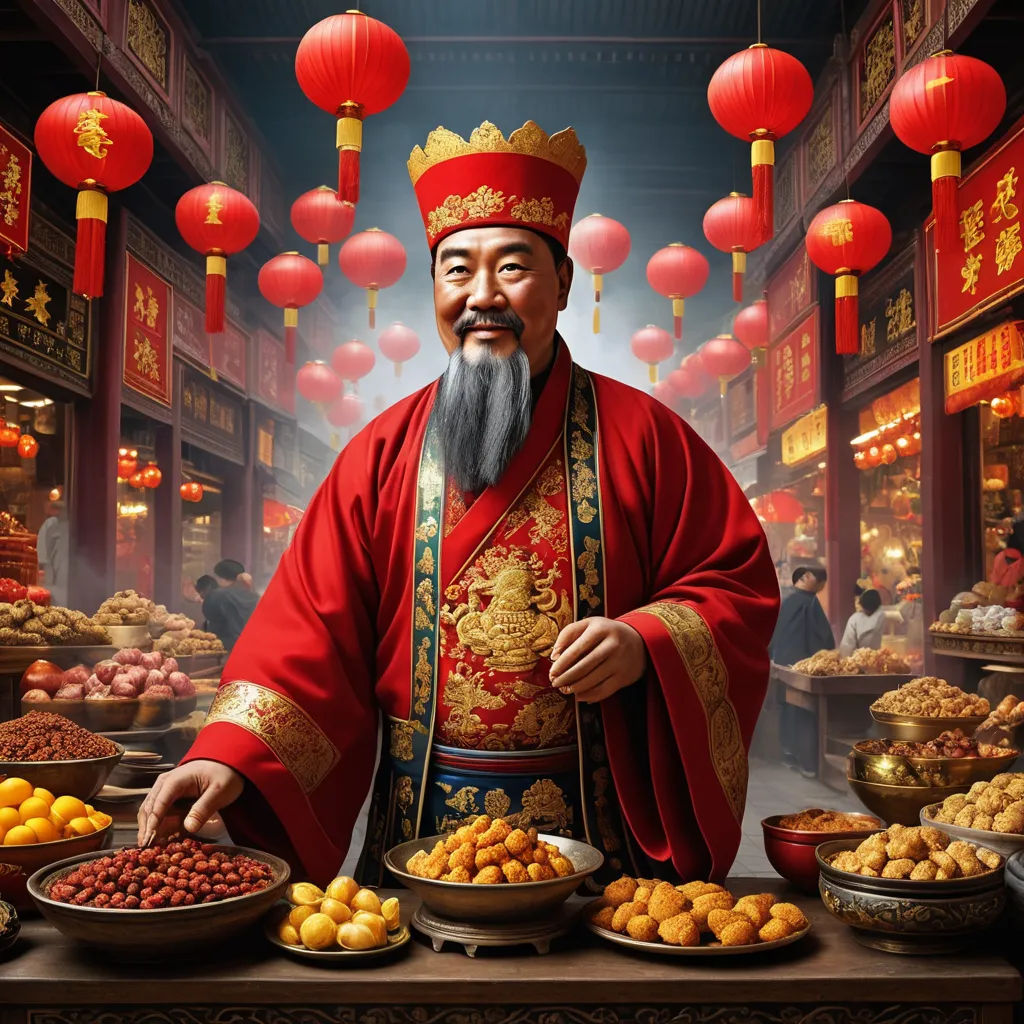
Cai Shen, the second god, was the most popular among merchants. His blessings were sought for success in businesses and wealth accumulation.
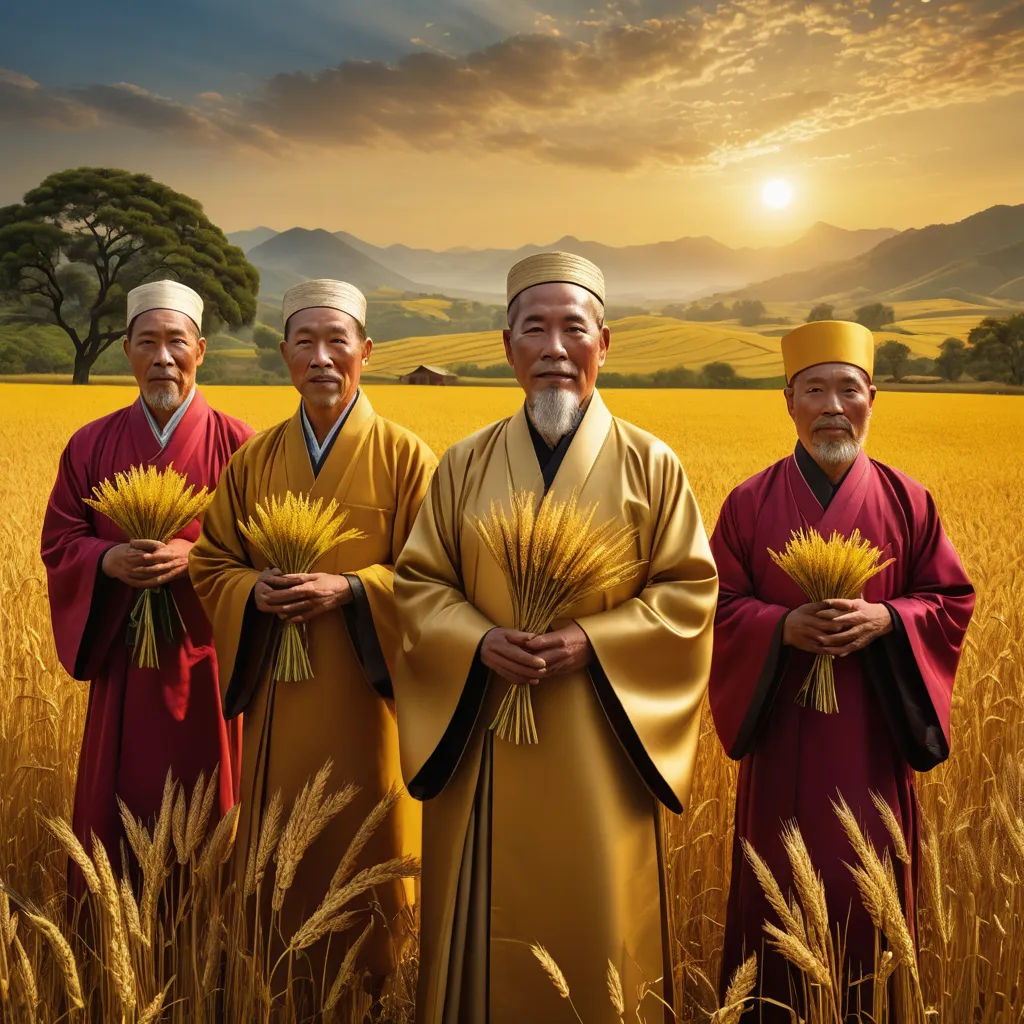
The third god, Fan Li, was a symbol of prosperity and growth. Farmers prayed to him for bountiful harvests and protection of their crops.
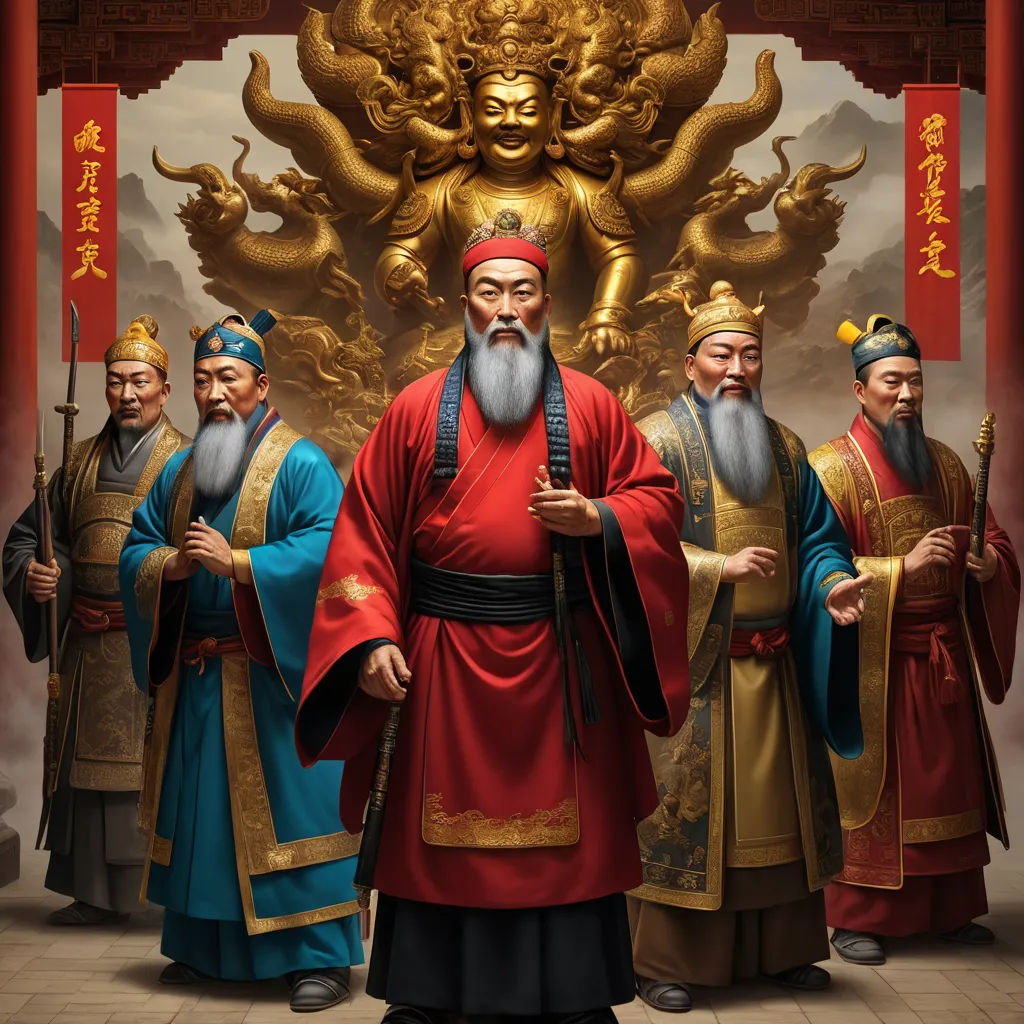
The fourth god, Zhao Gongming, was revered by soldiers and warriors. They prayed to him for victory in battles and protection from harm.
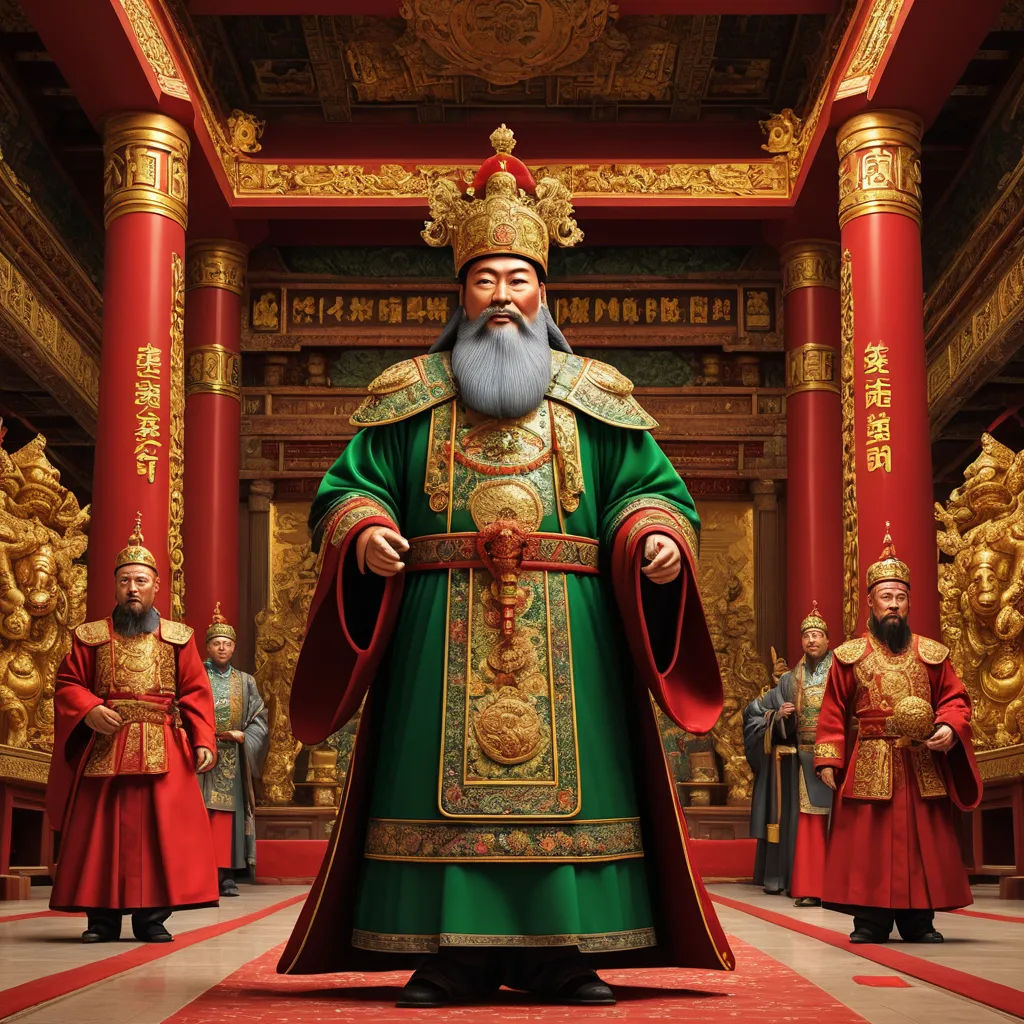
Finally, the fifth god, Guan Yu, was known for his integrity and loyalty. He was sought by judges and officials who aspired to serve with honesty and uphold justice.
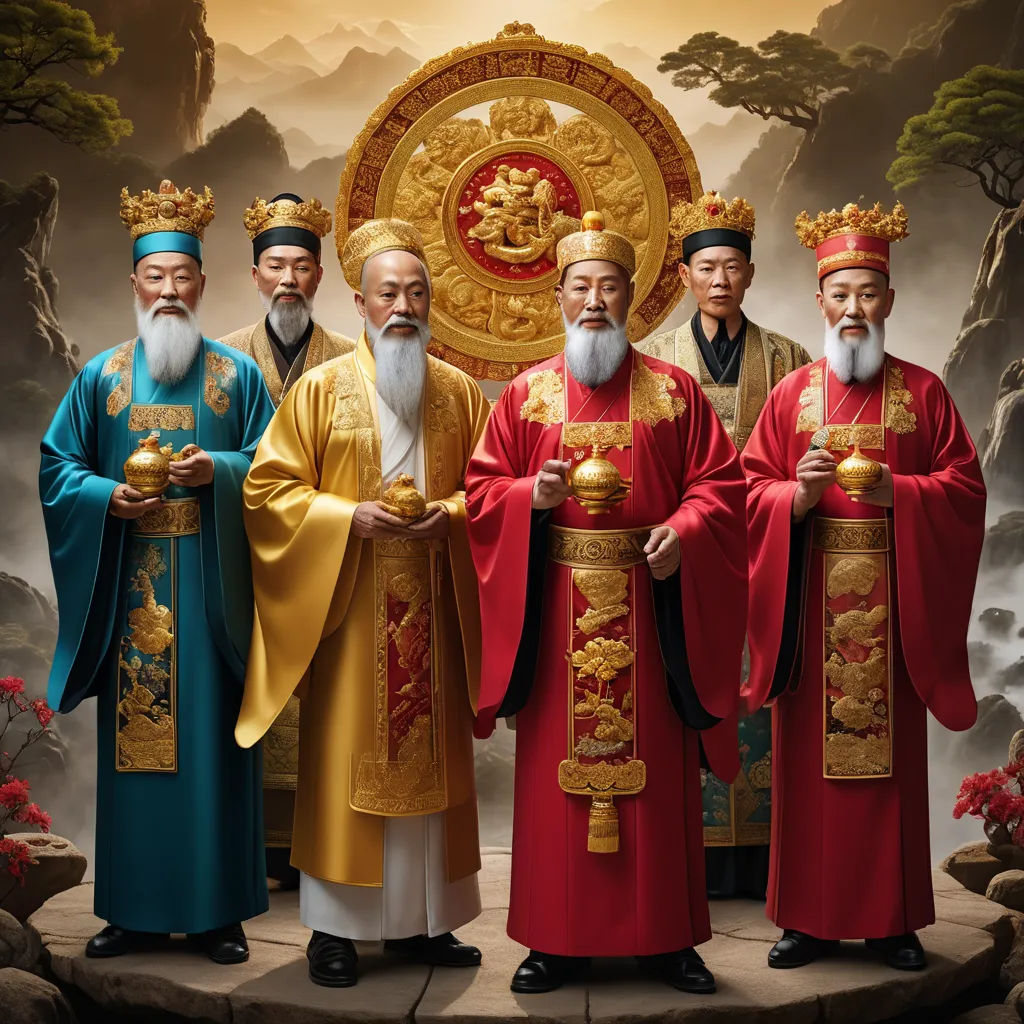
Despite their individual duties, the Five Gods of Wealth shared a common mission: to bring prosperity to the people. They worked together harmoniously, ensuring balance and abundance in the land.

One day, a great calamity fell upon ancient China. A drought had struck the land, causing crops to wilt and rivers to dry up. The people were in despair, fearing starvation and ruin.
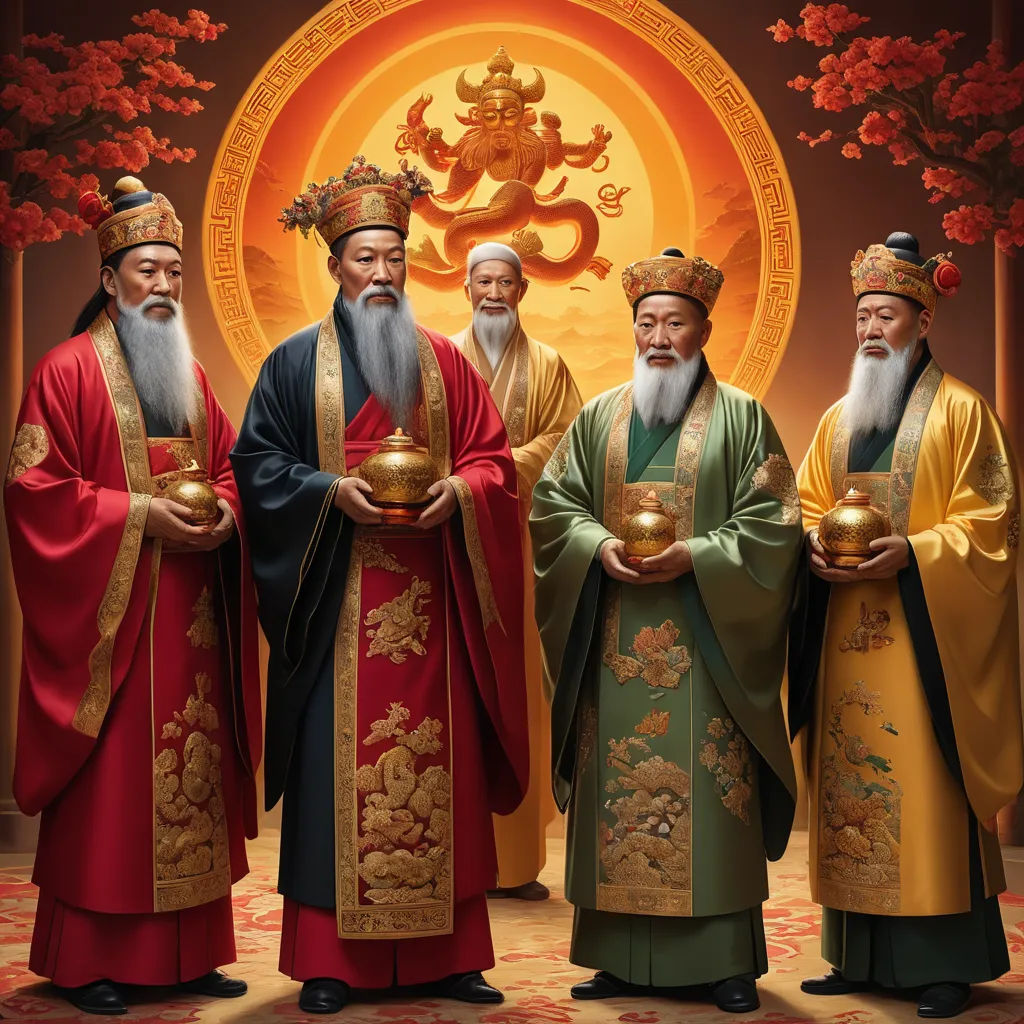
Seeing this, the Five Gods of Wealth convened. They knew they had to act quickly to restore prosperity and hope to the people. Each god was tasked with a specific role in the mission.
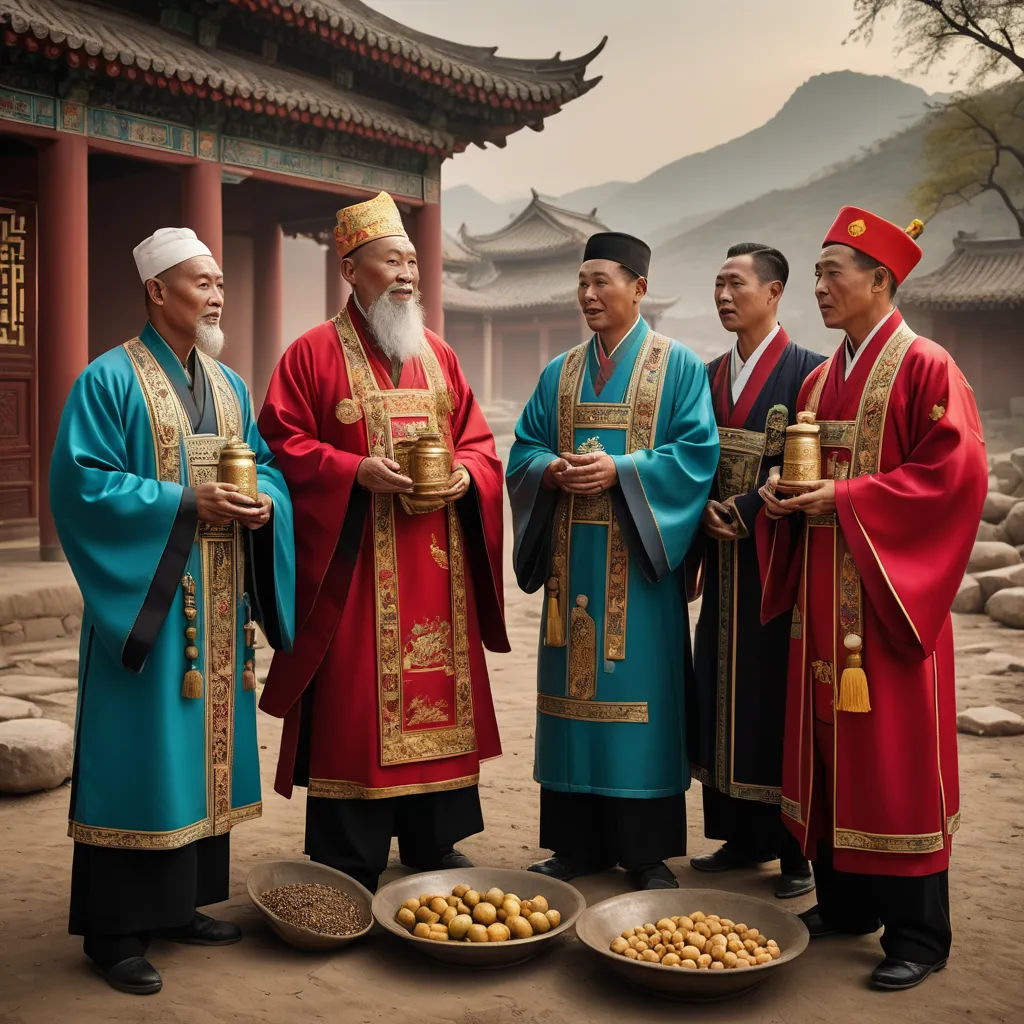
Bi Gan used his wisdom to devise a plan that would help the people survive the drought. He educated the people about water conservation and efficient farming techniques.
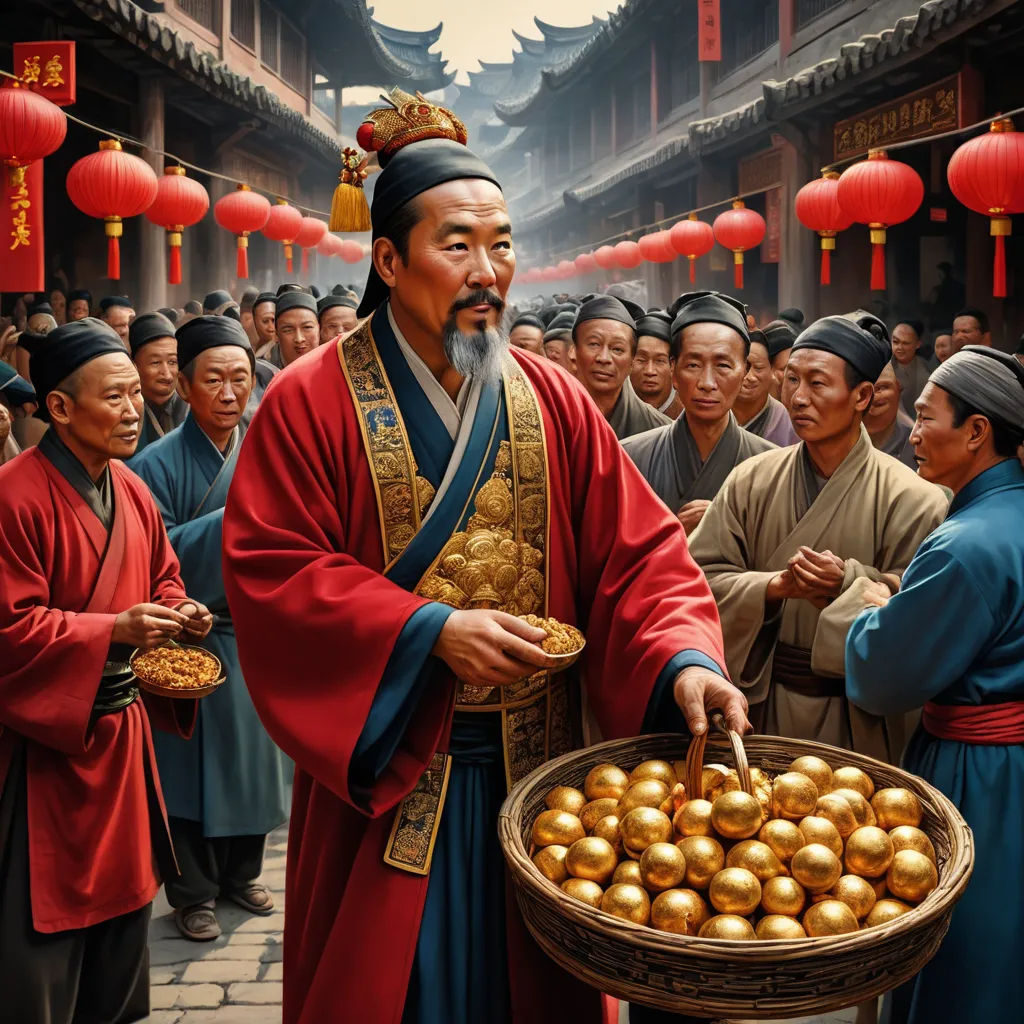
Cai Shen, using his influence, persuaded wealthy merchants to generously donate food and resources to the starving populace. His charisma was instrumental in this endeavor.
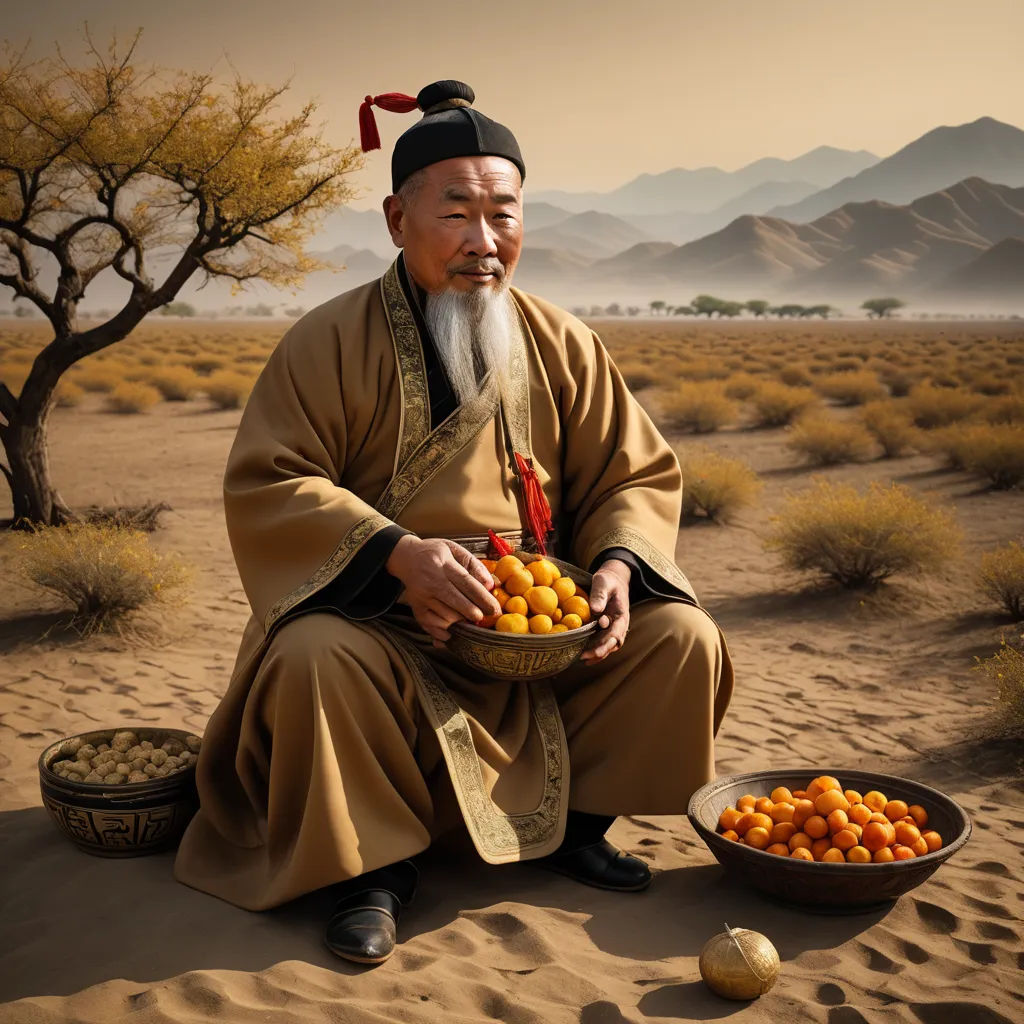
Fan Li, the god of prosperity, blessed the soil, ensuring that even the sparse amount of crops would yield enough to sustain the people through the drought.
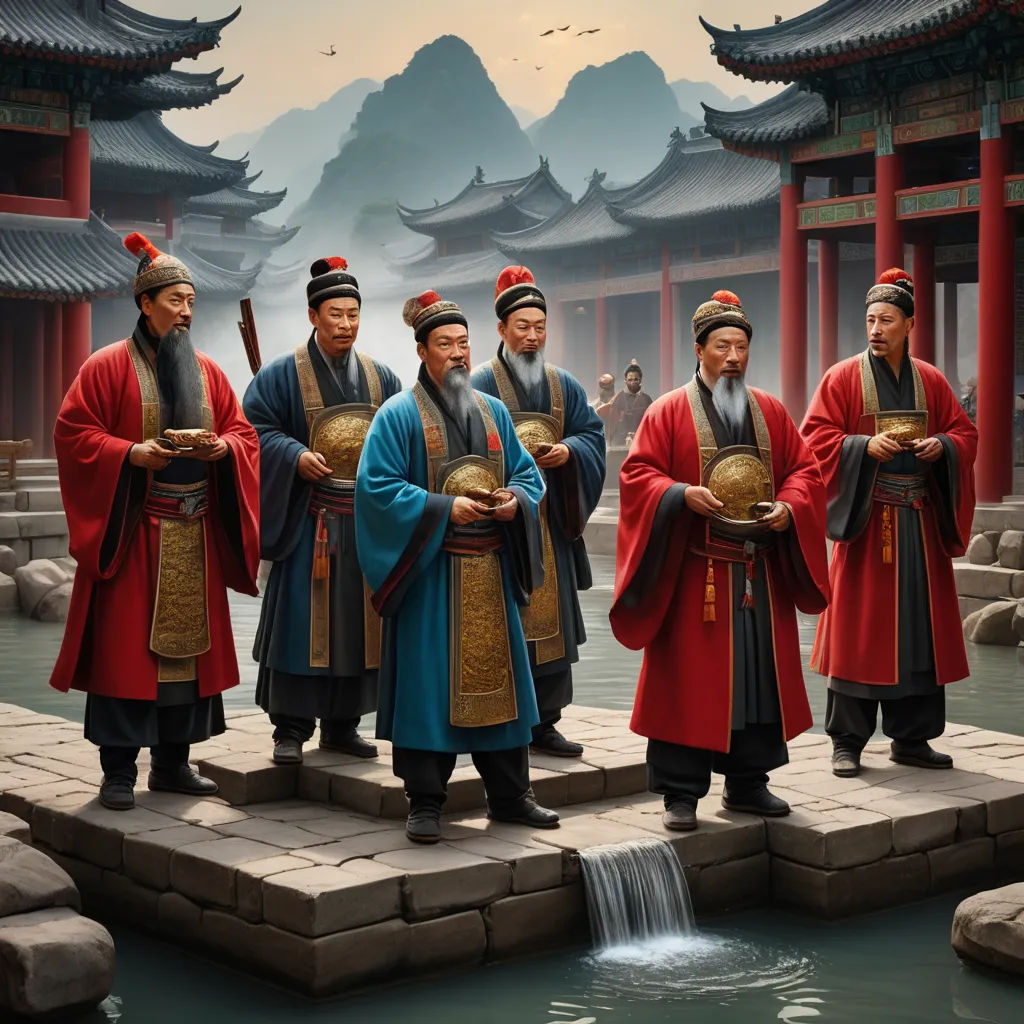
Zhao Gongming, the god of warriors, led the soldiers to dig wells and canals. Their hard work ensured that water was distributed evenly across the provinces.
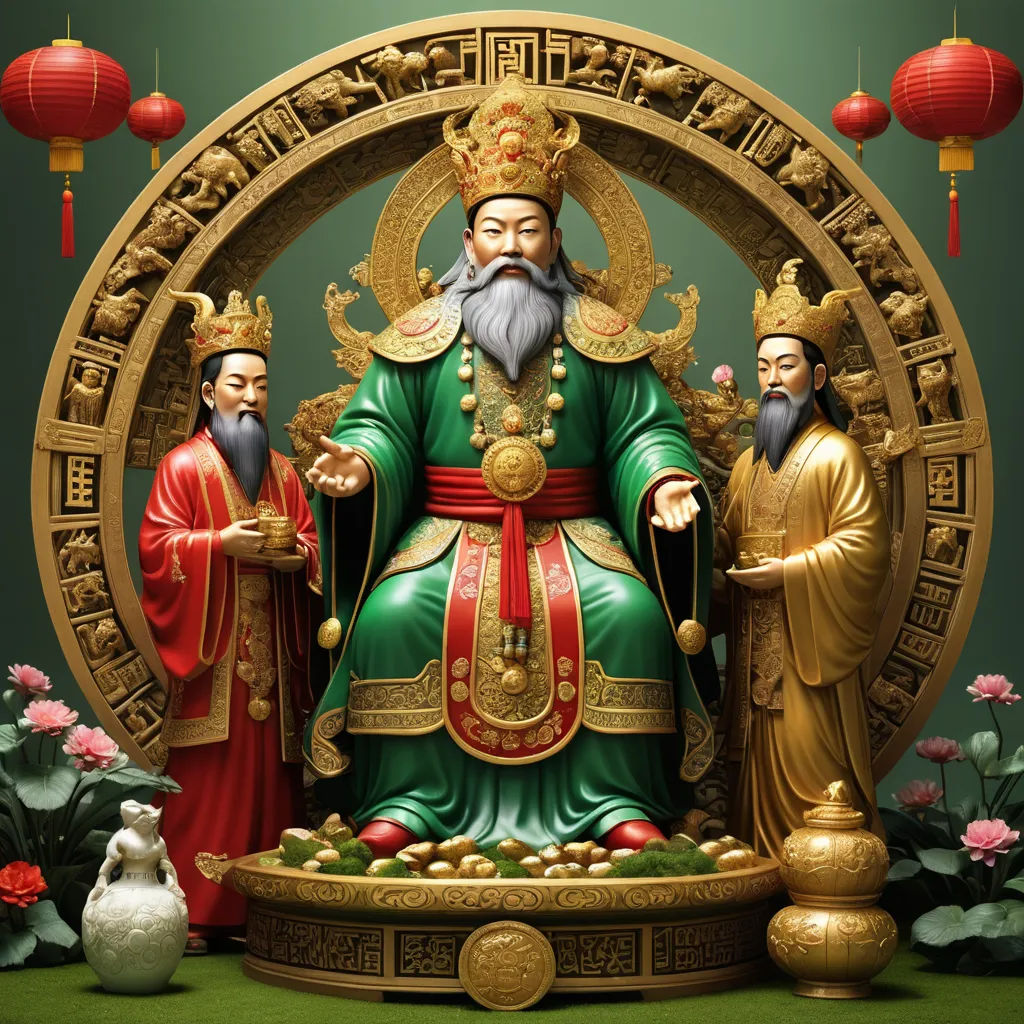
Finally, Guan Yu, the god of integrity, ensured fairness in the distribution of resources and maintained peace and order amidst the crisis.
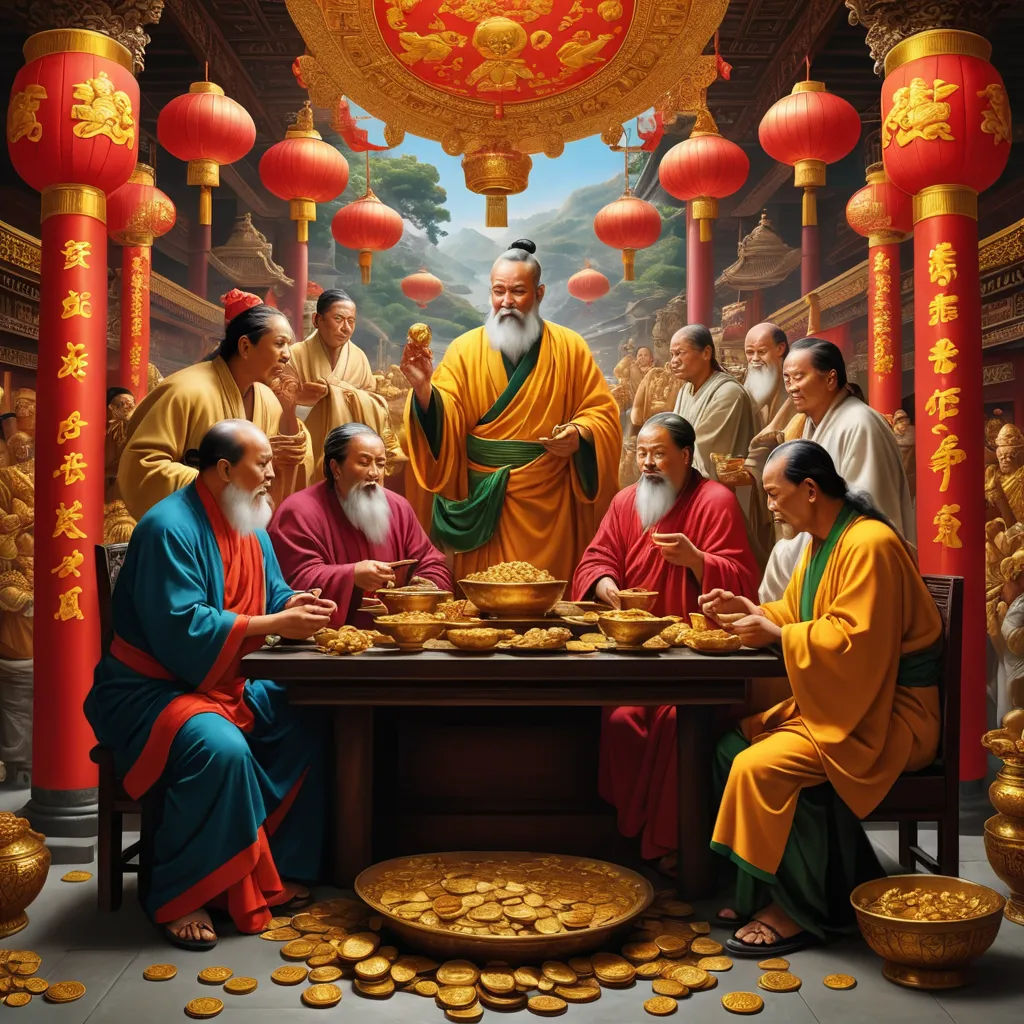
The combined efforts of the Five Gods of Wealth gradually improved the situation. The people, inspired by their guidance, worked together and supported each other through the difficult time.
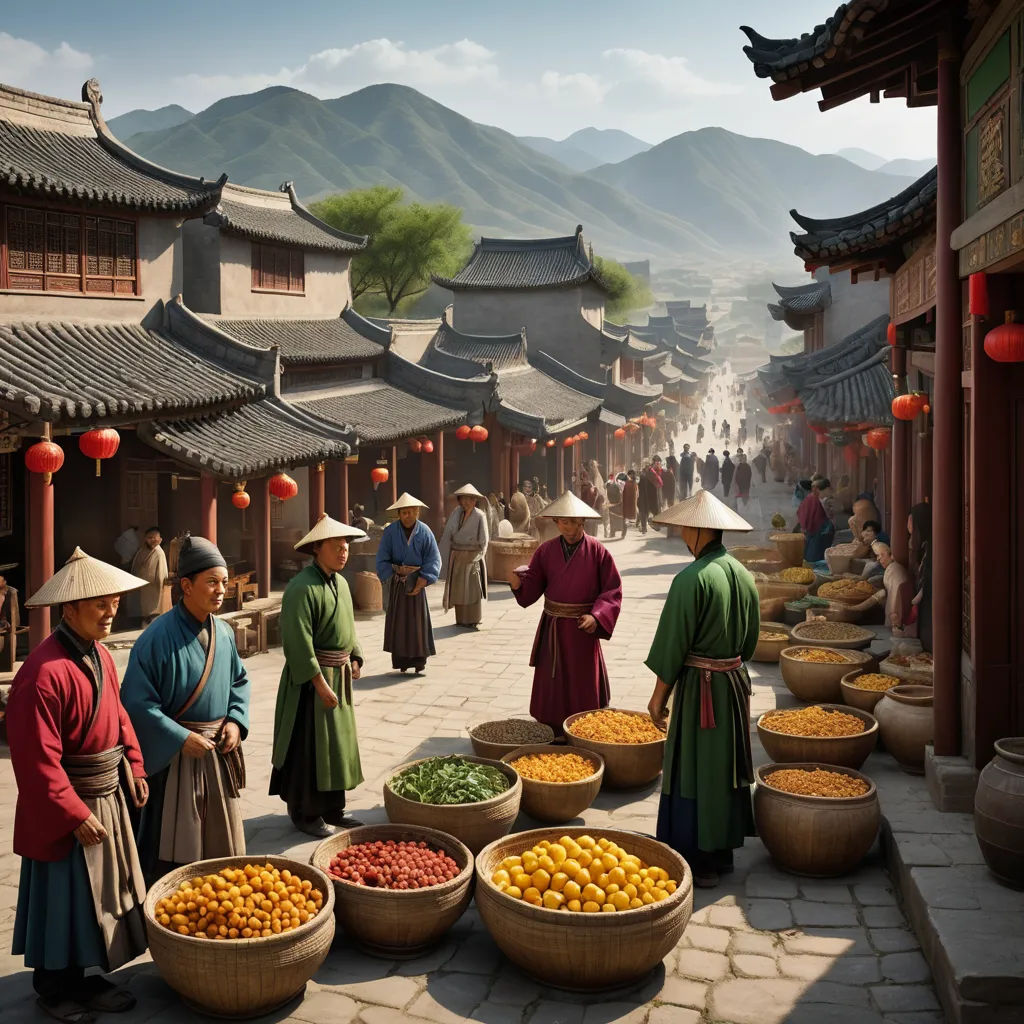
As the drought finally ended, life in ancient China started to return to normal. The crops grew again, the rivers flowed freely, and the markets bustled with activity.
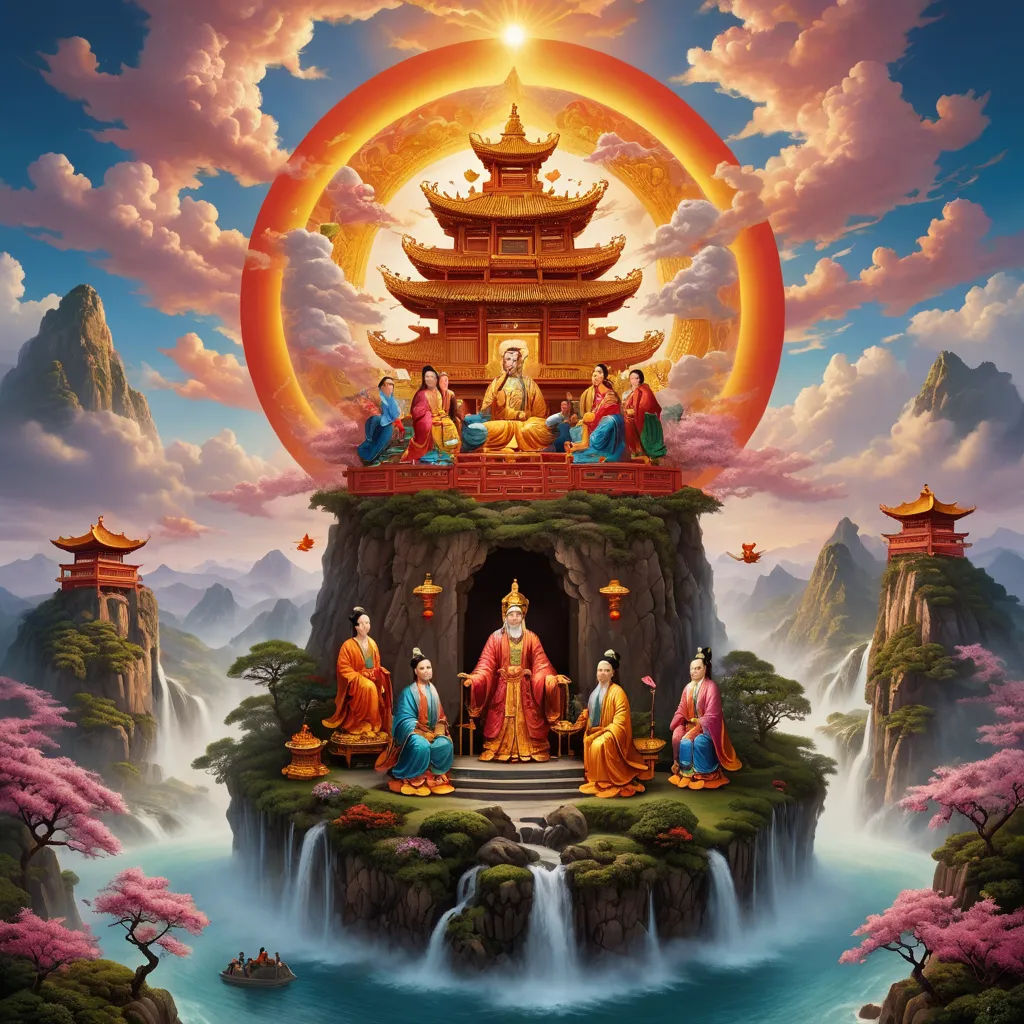
The Five Gods of Wealth, having fulfilled their mission, returned to their celestial abode. But their teachings and blessings remained, guiding the people towards prosperity and harmony.
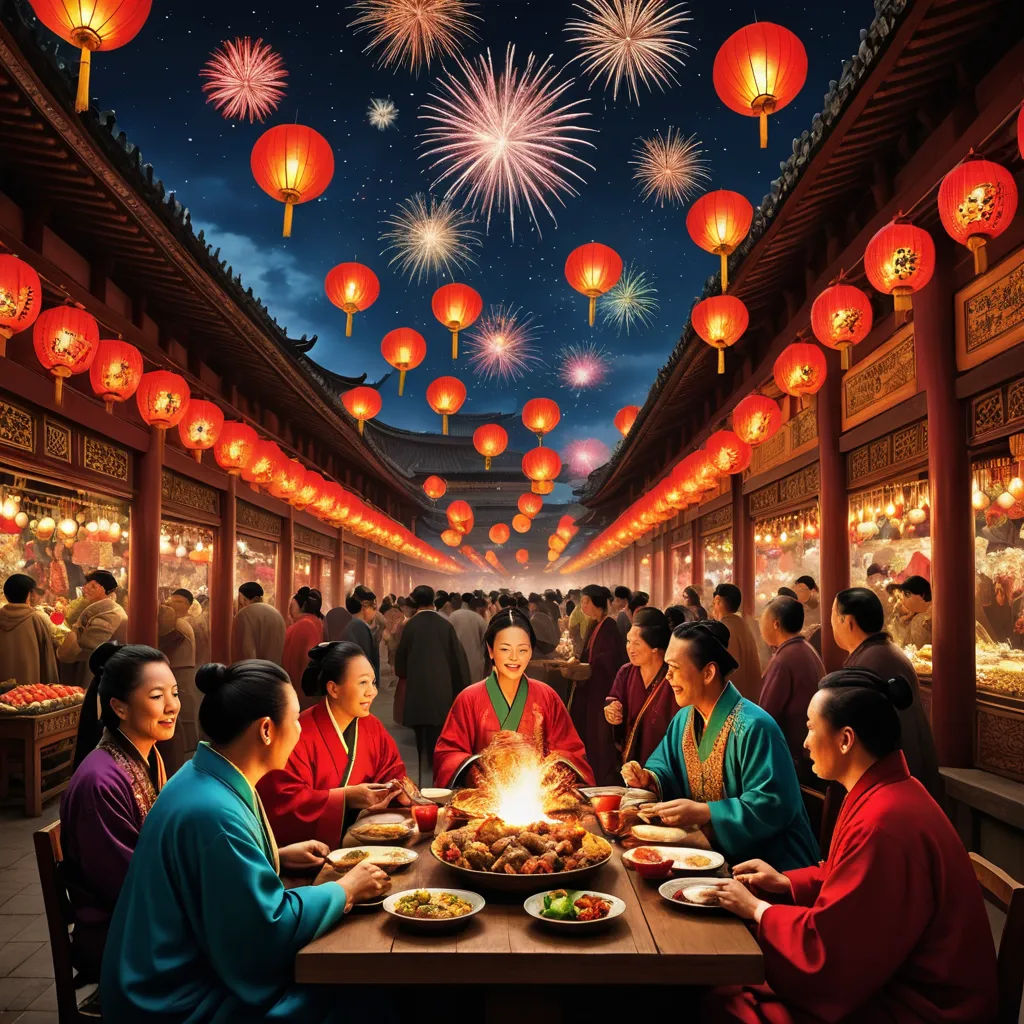
The people of ancient China, filled with gratitude, continued to revere the Five Gods of Wealth. They celebrated their victory over the drought with a grand feast and fireworks, marking the beginning of a prosperous era.
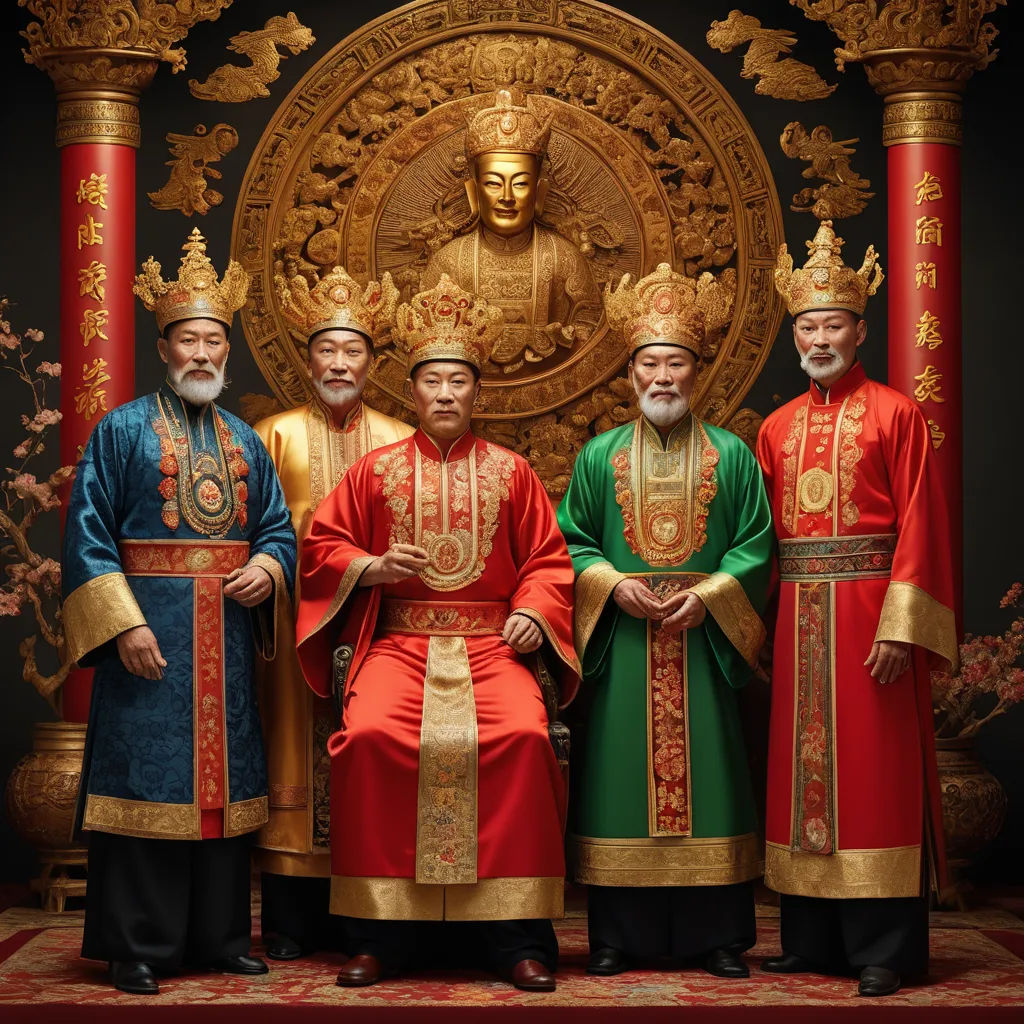
The story of the Five Gods of Wealth spread throughout the land, inspiring generations. Their tale became a symbol of unity, resilience, and the power of collective effort.
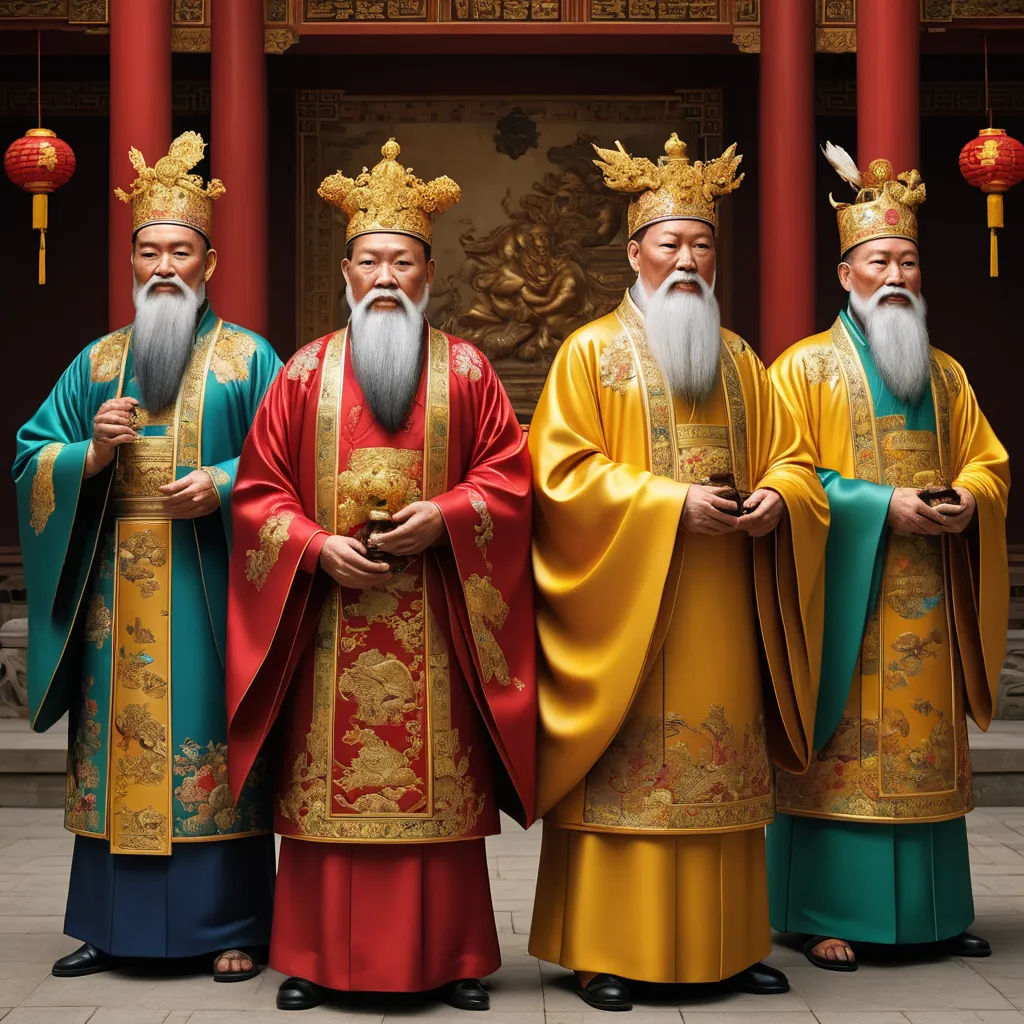
And so, the legacy of the Five Gods of Wealth lived on, reminding the people of the true meaning of wealth: not just material riches, but wisdom, kindness, prosperity, courage, and integrity.
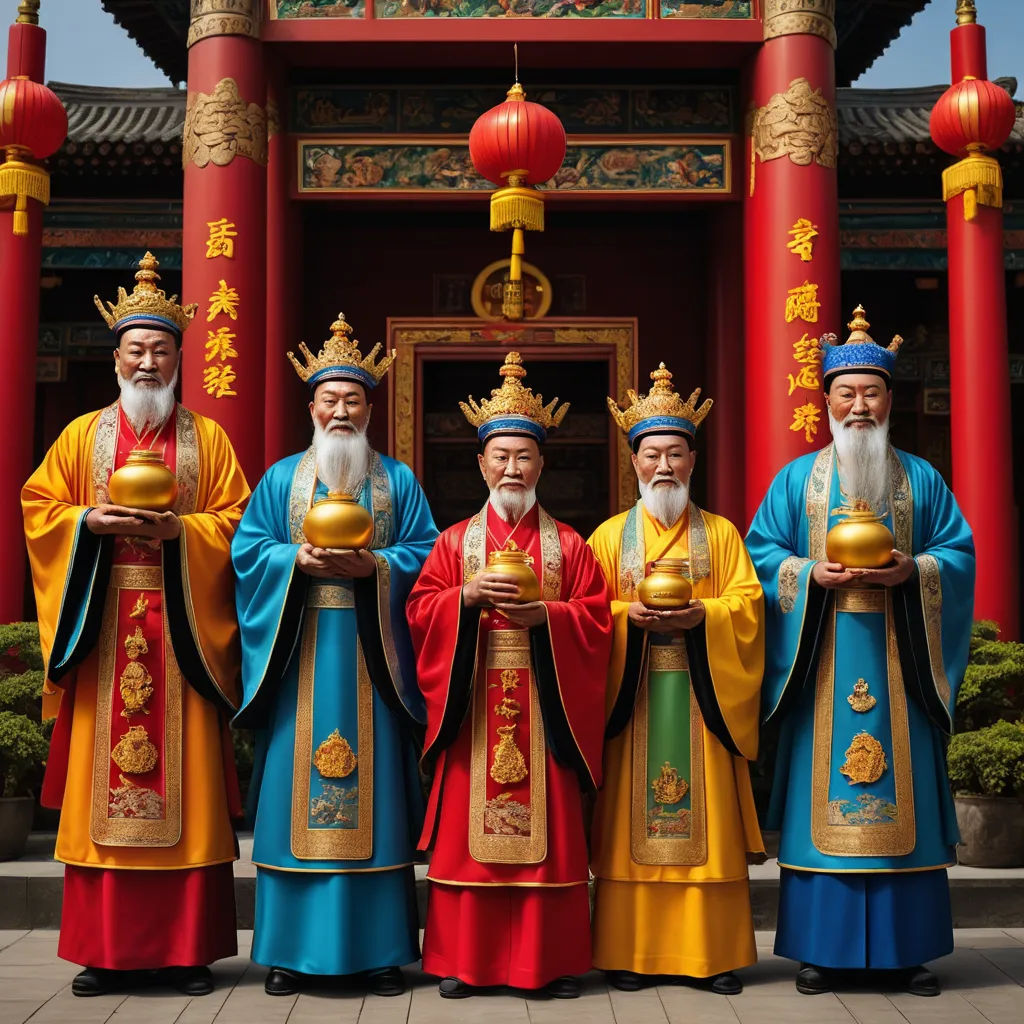
Today, the Five Gods of Wealth are still revered in China. Their teachings continue to guide the people, encouraging them to strive for a balanced and prosperous life.
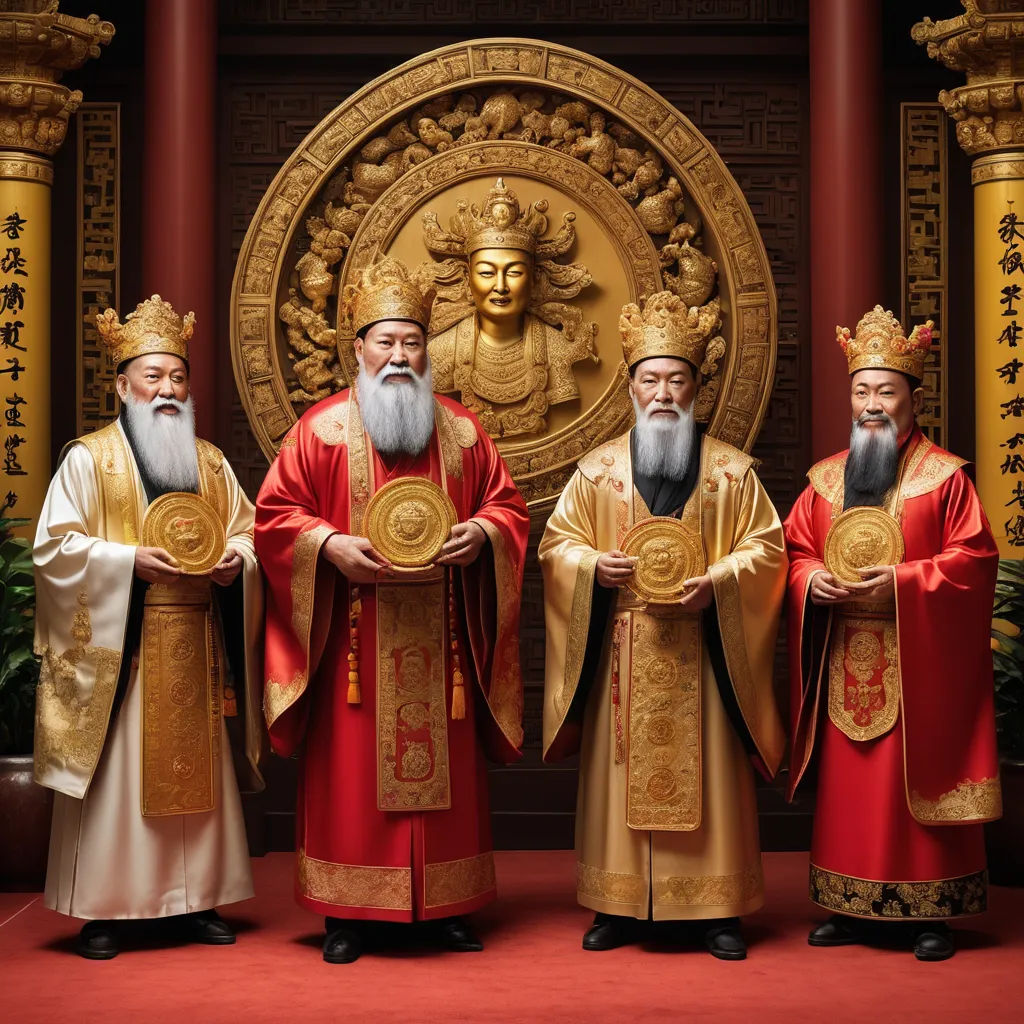
The tale of the Five Gods of Wealth serves as a reminder that wealth comes in many forms, and it's the combined wealth of knowledge, compassion, hard work, courage, and integrity that truly makes a prosperous society.